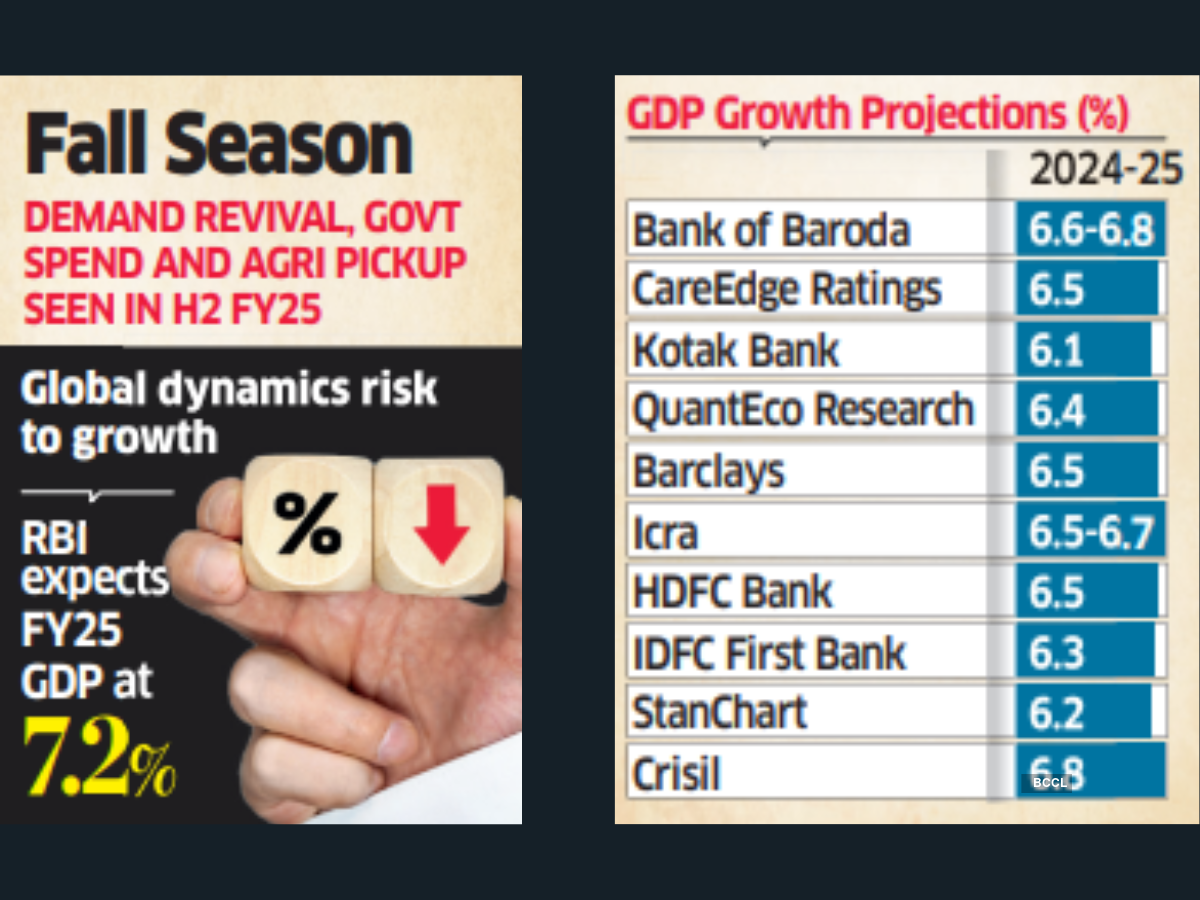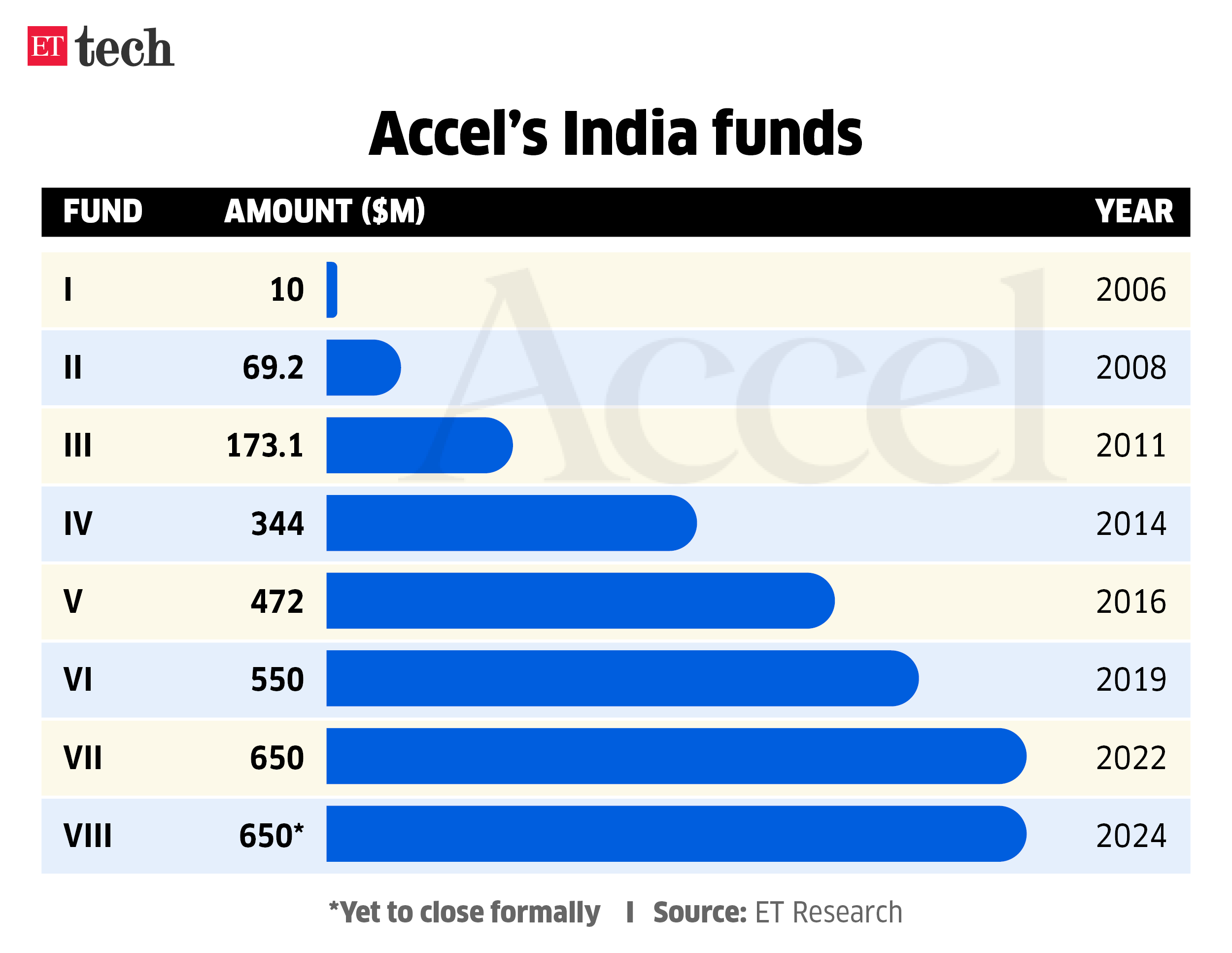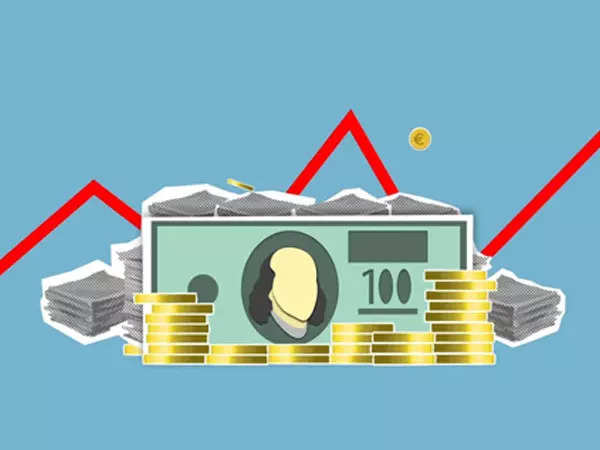A sharper-than-anticipated slowdown in economic expansion in the second quarter has prompted economists to slash their forecast on India’s growth for fiscal 2025.
Citing risk to the economic outlook and the likelihood of a rate cut by the Reserve Bank of India in February, they now predict gross domestic product (GDP) to grow 6.1-6.8% in the year ending March 31, lower than the central bank’s forecast of 7.2%. GDP growth was the slowest in seven quarters at 5.4% in July-September, hurt by low consumption and weak investment demand.
CareEdge Ratings lowered its FY25 GDP forecast to 6.5%, from 7%. “Urban consumption is seeing moderation after the sharp spurt, post-Covid,” said Rajani Sinha, its chief economist.
Goldman Sachs had earlier scaled down its forecast for FY25 to 6.4%, from 6.5%.
Kotak Mahindra Bank cut its projection to 6.1%, from 6.7% earlier. The private bank expects GDP to expand 6.2% in the second half of the fiscal year. “Our estimates over the next few quarters are predicated on gradual improvement in a few cyclical factors – pace of government spending normalising, and employment visibility improving in certain sectors such as IT-ITeS, banking and retail,” said Upasna Bhardwaj, chief economist at Kotak Mahindra Bank.
QuantEco Research has cut its projection to 6.4% from 7.0% for FY25, while Barclays slashed its view to 6.5%, from 6.8%. Ratings firm Crisil anticipates the economy to grow 6.8% in FY25.

Demand Doldrums
GDP growth in April-September was 6%, against 8.2% in the first half of FY24. The weakness in the first half of FY25 is led by a slowdown in urban demand, and decline in general government capital expenditure.
GVA Growth Down
The seeds of moderation in urban demand were sown in the second half of 2023-24, with a slowdown in urban wage growth, explained Gaura Sengupta, chief economist at IDFC First Bank. “This is likely to persist in the remainder of 2024-25 as companies’ profit growth reduces,” she added.
Gross value added (GVA) growth dropped to 5.6% in the second quarter, also a seven-quarter low. “In the first half of FY25, GDP growth was 20 basis points (0.2 percentage point) lower than GVA growth. GDP growth in FY25 could be lower than GVA growth,” cautioned DK Pant, chief economist at India Ratings & Research.
Capex & Consumption
Manufacturing sector growth slowed to 2.2% in the second quarter, while agriculture rebounded with a 3.5% expansion and the services sector held steady at 7.1%.
Services sector growth is expected to remain resilient, driven by rural recovery and support to purchasing power from government spending, said Anubhuti Sahay, senior economist at Standard Chartered Bank. “Several state governments have rolled out income transfer schemes, which are likely to be reflected in Q3 FY25 economic activity,” Sahay added.
As per CareEdge’s Sinha, GDP growth rate is expected to pick up in the second half, supported by increased government capex. Rural consumption is also expected to continue the growth momentum supported by healthy agricultural production. Food inflation is likely to moderate by the last quarter of the fiscal year and that would be another supporting factor for consumption.
“It will be critical for the government to focus on a broad-based recovery in consumption. In the budget next year, the government should look at consumption-boosting measures, including tax benefits,” Sinha said.
Experts cautioned that the overhang on growth from the employment scenario in rural and urban areas, and regulatory measures-led personal credit slowdown will likely continue. “Risks from US economic policies will start impinging on India’s growth prospects, with the first-round impact visible in capital outflows and subsequent impact likely in select exports,” said Bhardwaj of Kotak Mahindra Bank.





